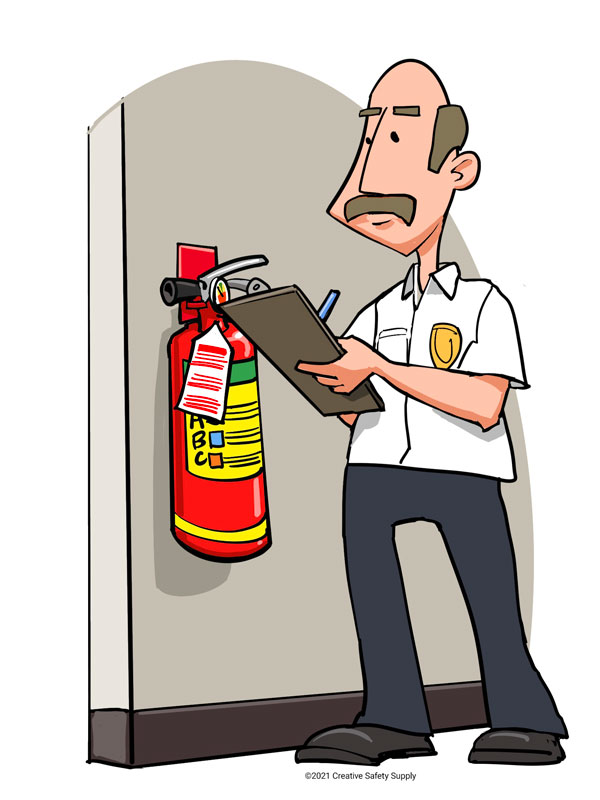Protection against fire is a must for all Sydney business. It’s not only legally required but also a way to keep the property, employees and customers secured. Fires can result in devastating losses in minutes, but the risks involved could be mitigated or prevented by having the appropriate precautions in place. Fire inspections and regular examination of electrical systems as well as the compliance with CFSP standards all help to ensure that the environment is safe.

The reasons fire inspections are at the backbone of safety
Fire Inspections are the first line of defense against potential hazards. These inspections verify that every part of a building’s protection system is functional and up-to-date. In Sydney, most businesses are required to conduct an inspection every six to twelve months, based on building type and council regulations. An inspection often covers everything including fire alarm panels and sprinkler systems to smoke alarms, hydrants, extinguishers, emergency lighting and more.
What makes inspections so vital is their ability to spot concealed issues before they turn potentially dangerous. It may not seem important, but a small problem with a fire hydrant, or a smoke alarm that is not working, could result in fatality in the event of a crisis. Business owners who regularly inspect their fire hydrants are meeting their legal obligations, and making themselves safe from unexpected catastrophes.
Testing and Tagging For Electrical Safety: Addressing Hidden risks
Electrical systems are an important cause of fires at work. Testing and tagging is therefore an important part of an action plan for ensuring security from fire. This includes checking electrical devices to ensure that they are safe, compliant and functional. Then the tag is visible attached to the equipment indicating it’s passed inspection. This isn’t just an obligatory requirement for most enterprises. It’s an effective way of protecting against potential risks that are not obvious to the naked eye.
A faulty appliance, old wiring or worn-out cables could quickly become fire hazards If not properly checked. Through regular testing and tagging, businesses can reduce the risk of electrical malfunctions that could cause fires. The employees are also assured that the work environment is secure. This builds a sense of trust and security in the workplace. In conjunction with fire inspections and testing, this complete security plan minimizes risks from a variety of perspectives.
The role of CFSP in ensuring compliance and Certification
In New South Wales, only a Competent Fire Safety Practitioner (CFSP) is able to certify and sign critical documents regarding fire safety, such as Annual Fire Safety Statements. The CFSP accreditation guarantees that only qualified professionals can assess and verify the safety measures for fire. For business owners, working with a CFSP means that reports and inspections aren’t just a routine document but reliable evaluations carried out by experts.
The job of a CFSP goes beyond simply the mere ticking of boxes. These experts provide thorough reports and verify compliance with regulations. Companies without CFSP certification are at risk of being penalized, having legal issues and even closing if their protection measures for fires are considered insufficient. Working with certified professionals will ensure that the fire safety systems are in place in a proper manner and that compliance requirements are fulfilled without stress.
The Fire Safety Act: A Lifelong Engagement
Fire safety isn’t only a once-in-a-lifetime requirement, but rather an ongoing obligation for every business owner. Regular inspections, continuous testing of electrical systems, and the proper certification via CFSP supervision, create a system of safety that does not stop. This practice is not only legal, but it also promotes a safety-conscious culture in the workplace. Employees feel more confident when they know that evacuation procedures, smoke alarms, emergency lighting, and a fire suppression systems are in place.
Treating fire safety as a continuous process rather than an annual checkbox not only minimizes risk, but also helps strengthen the company’s image. If safety is a priority, clients and customers feel safer. A proactive, long-term approach to security measures against fires can save cash by avoiding costly damage, fines or legal battles. It also safeguards all those in the building.
Conclusion
Sydney’s fire safety program is an intricate process that includes inspections, testing, tagging and the professional certification of an CFSP. Each of these elements plays an important role in aiding businesses in complying with the law, but also in protecting people and property. Companies that place safety as an essential aspect of their work and not just an added note will fulfill their legal obligations and ensure a stable and safe environment.